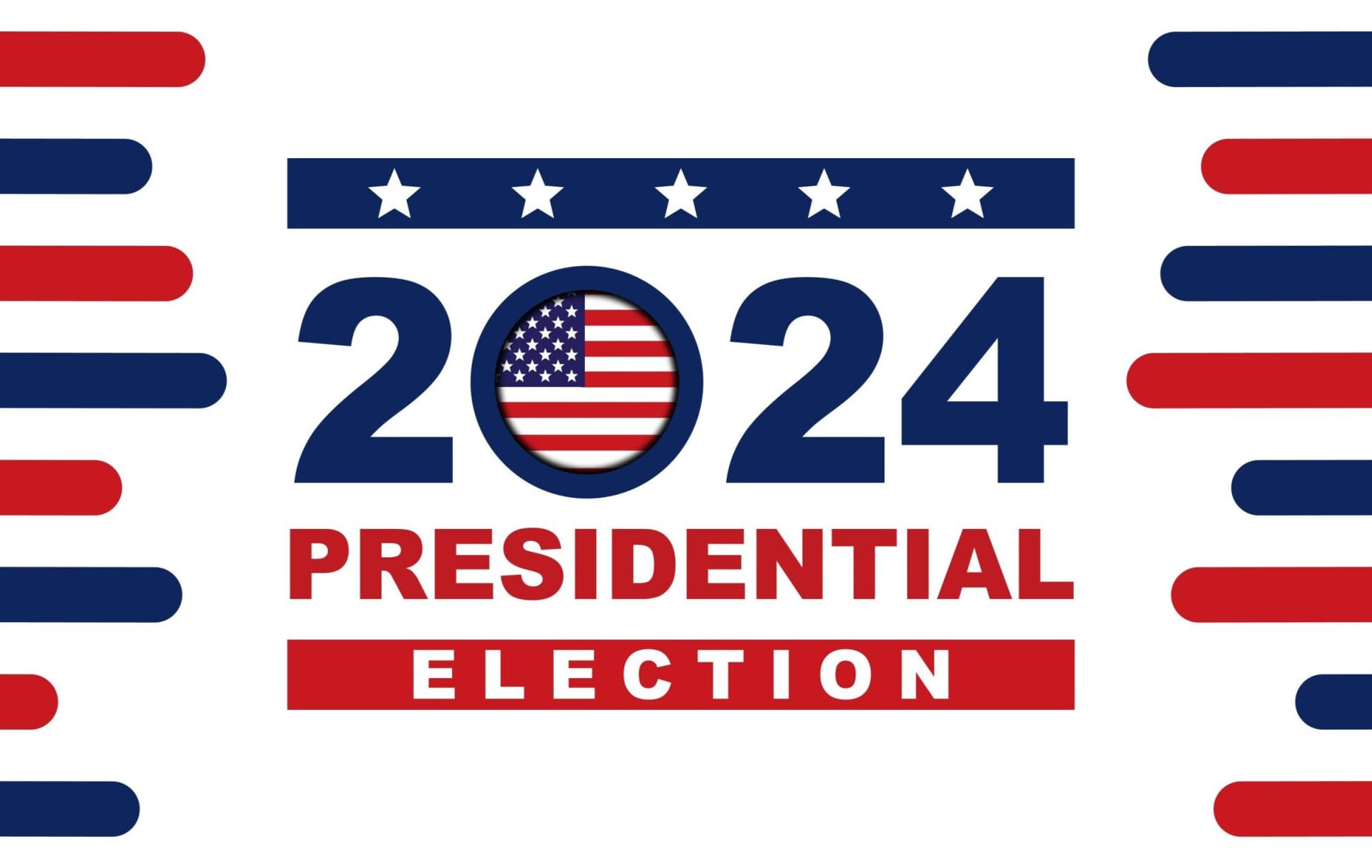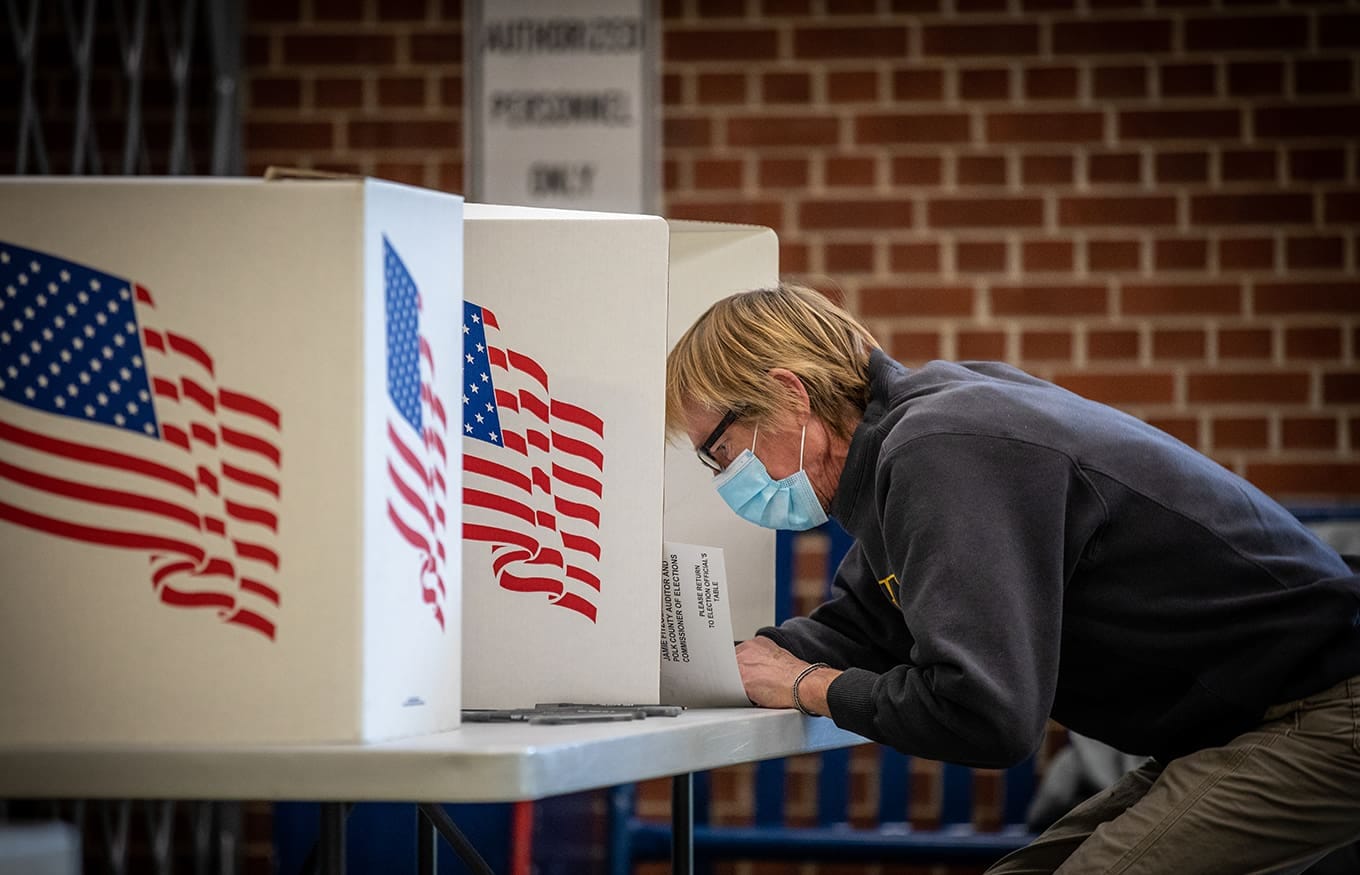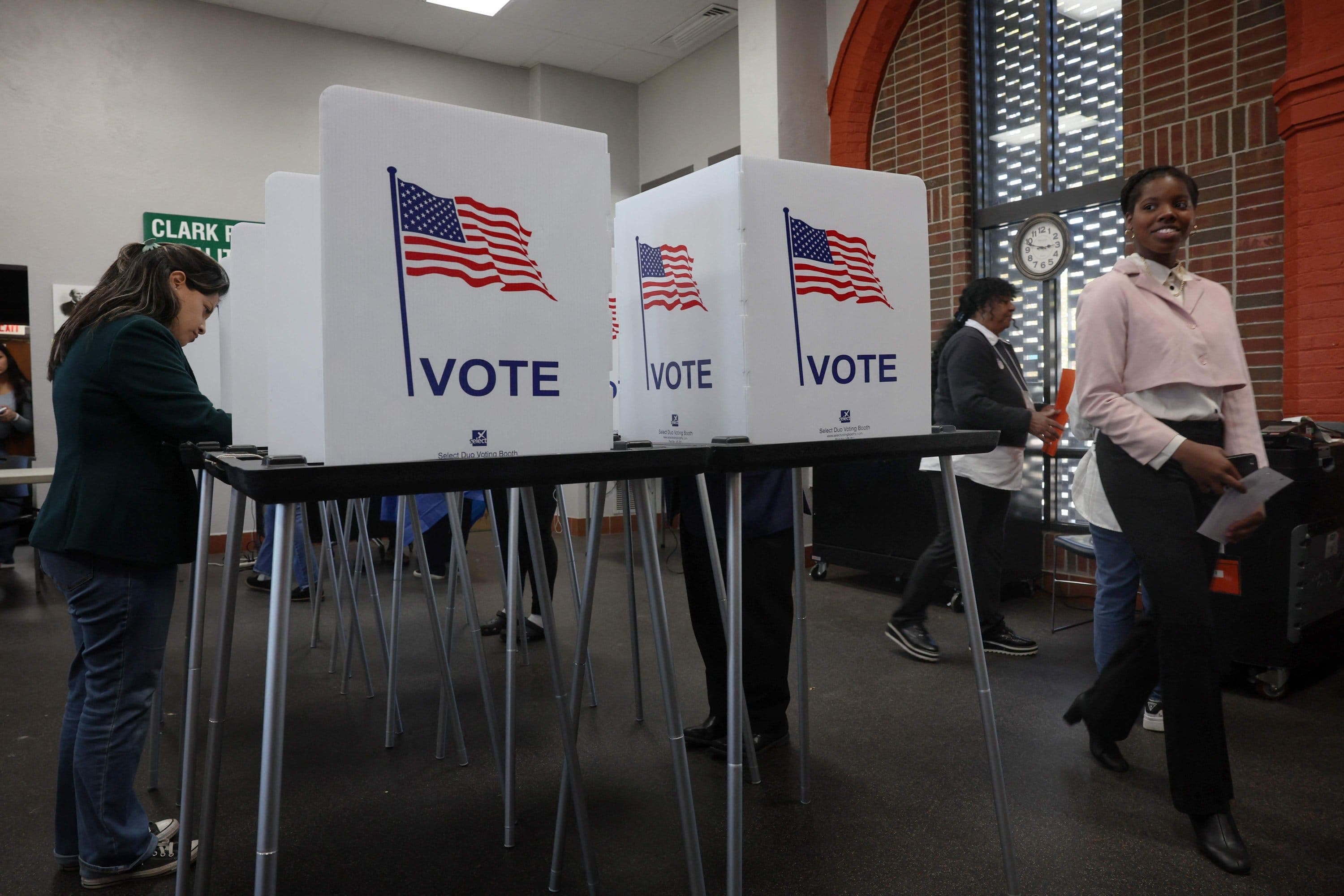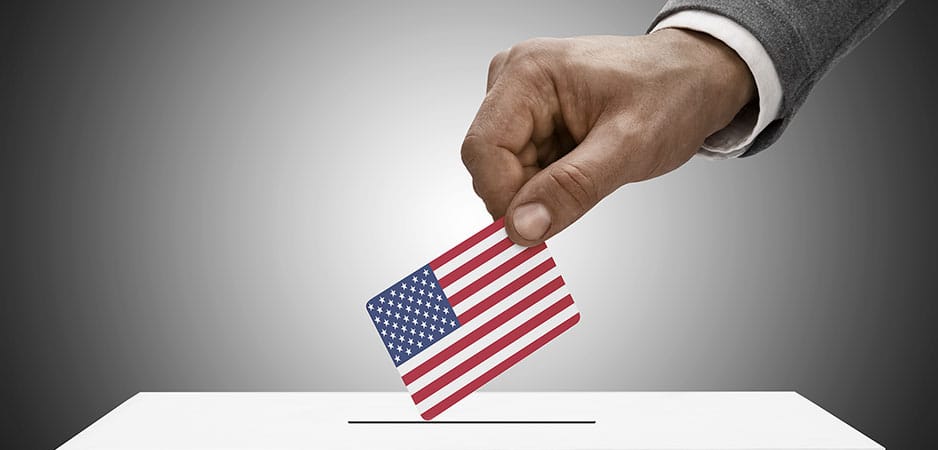The Growing Impact of AI on US Elections: Opportunities, Threats, and Safeguards
As the 2024 US presidential election draws near, a new threat looms on the horizon: the potential misuse of artificial intelligence (AI) to influence voter opinions and undermine the democratic process. Celebrities, tech experts, and government officials alike are sounding the alarm, warning that bad actors could leverage AI tools to create and spread convincing deepfakes, targeted misinformation, and manipulated content on an unprecedented scale.
From fake videos of candidates making inflammatory statements to AI-generated news articles and social media posts, the possibilities for deception are endless.
Let's explore some of the key dangers, the perspectives of leading experts, and the steps being taken to safeguard the integrity of the democratic process. Stay informed and learn how you can navigate this new landscape of AI-driven misinformation.
Rising Concerns Among Americans

Recent surveys underscore the growing concern among Americans about the impact of artificial intelligence (AI) on the upcoming US elections. A Pew Research Center study found that 57% of US adults are extremely or very concerned that AI will be used to create and distribute fake or misleading information about candidates and campaigns. This worry is shared equally by Republicans and Democrats.
According to a survey by Hosting Advice, 58% of adults reported being misled by AI-generated fake news, with 70% expressing concern about how fake news might affect the upcoming election. Despite these apprehensions, only 20% of Americans trust major tech companies to prevent the misuse of AI on their platforms.
57% of Americans are seriously concerned about AI being used to create and spread false information (Pew Research Center)
58% of adults report being misled by AI-generated fake news (Hosting Advice)
Only 20% of Americans trust major tech companies to prevent AI misuse (Pew Research Center)
70% of survey respondents expressed worry about fake news affecting the upcoming election (Hosting Advice)
As the 2024 US presidential election approaches, it is evident that Americans are increasingly worried about the potential misuse of AI in spreading misinformation and influencing voter opinions.
The lack of trust in tech companies to effectively combat this issue highlights the need for robust safeguards and increased public awareness to protect the integrity of the democratic process.
Key Threats to Electoral Integrity

As artificial intelligence continues to advance at a rapid pace, experts are sounding the alarm about its potential to undermine the integrity of the upcoming 2024 US presidential election. From deepfakes to targeted misinformation campaigns, AI-powered tools are providing new ways for malicious actors to manipulate public opinion and suppress voter turnout on an unprecedented scale. Here are some key threats to Electoral Integrity caused by AI.
1. Deepfake Technology
Deepfakes, highly realistic fake videos generated by AI, could be a major threat in political disinformation. Experts warn that bad actors could use deepfakes to:
Create fake videos showing candidates making inflammatory statements or engaging in unethical behaviour
Produce synthetic audio clips mimicking politicians' voices to mislead voters about their positions
Generate manipulated images that could damage political figures' reputations and credibility
2. Voter Suppression Tactics
AI is also being weaponized to suppress voter turnout through targeted misinformation campaigns. These tools enable bad actors to:
Generate convincing fake messages about last-minute changes to polling locations or hours
Spread false information about voting deadlines, ID requirements, and eligibility criteria
Churn out misleading content micro-targeted at specific voter demographics to discourage them from casting ballots
3. Information Manipulation
Perhaps most concerningly, AI enables the rapid spread of misinformation on a massive scale. The technology allows malicious actors to:
Quickly produce and disseminate huge volumes of fake news articles and bogus "data"
Create automated networks of bots and troll farms to amplify false narratives across social media
Flood the internet with AI-generated political propaganda, conspiracy theories, and misleading memes targeting impressionable voters
According to Eliot Higgins, director of Bellingcat Productions BV, an independent investigative collective of investigators, researchers, and citizen journalists, the production of deepfakes is one of the main dangers associated with generative AI.
Countermeasures and Solutions

To combat the growing threat of AI-driven misinformation in the lead-up to the 2024 election, policymakers, tech companies, and advocacy groups are working to implement a range of countermeasures and solutions. They are trying to find technical solutions designed to safeguard the integrity of the democratic process.
Legislative Action
California has taken a proactive stance in addressing the challenges posed by AI in the political sphere. The state has recently:
Signed three groundbreaking bills specifically targeting the use of AI in political advertising
Mandated clear labelling and disclosure of AI-generated content in campaign materials
Established guidelines and restrictions for the use of AI by political campaigns to prevent abuse
These legislative measures serve as a model for other states and the federal government to follow in creating a comprehensive regulatory framework to govern the use of AI in elections.
Public Education Initiatives
Recognizing the critical role of an informed electorate in combating AI-driven deception, various organizations are launching public education campaigns:
Hollywood celebrities are lending their star power to public service announcements warning voters about the dangers of AI-generated deepfakes and misinformation
Nonprofits like MediaWise are providing hands-on training to help voters detect manipulated content and verify information sources
Educators and advocacy groups are developing digital literacy programs to teach critical thinking, fact-checking, and media analysis skills to students and the general public
By empowering citizens with the knowledge and tools to identify and resist AI-driven manipulation, these initiatives aim to create a more resilient and discerning electorate.
Technical Solutions
Experts also emphasize the need for robust technical solutions to detect and combat AI-generated misinformation:
Increased investment in AI detection technologies, such as algorithms that can identify synthetic media and anomalies in text, images, and video
Deployment of real-time deepfake detection systems by social media platforms and election monitoring bodies to quickly identify and remove manipulated content
Close collaboration between tech companies, academic researchers, and election officials to share information and coordinate responses to emerging threats
As Alex Mahadevan notes, the director of Mediawise, "governing bodies should, at the very least, demand transparency about algorithms behind these AI tools." By working together and leveraging cutting-edge technologies, stakeholders can create a multi-layered defense against AI-driven attempts to undermine the electoral process.
The Role of Tech Companies

As concerns about AI's influence on elections continue to grow, major technology companies are facing increasing pressure to take action. These companies play a crucial role in combating the spread of misinformation and ensuring the integrity of the democratic process.
One of the key areas where tech companies are being called upon to improve is content moderation. By developing more advanced systems to identify and remove fake or misleading content, these companies can help reduce the impact of AI-generated misinformation on voter opinions.
Another important aspect is the development of better detection tools specifically designed to identify AI-generated content.
Improve content moderation systems
Develop better detection tools for AI-generated content
Increase transparency about their AI algorithms
Implement stricter policies regarding political content
In addition to these technical measures, there is also a growing demand for increased transparency from tech companies about their AI algorithms. By providing more information about how these algorithms work and how they are being used, companies can help build trust with the public.
Expert Perspectives

Now, with all these AI challenges in the upcoming US elections, experts are giving some suggestions on how to prevent AI on this year's elections.
Alex Mahadevan, director of MediaWise, a nonprofit organization dedicated to media literacy, highlights two significant risks associated with generative AI in the context of elections.
The potential for real content to be dismissed as AI-generated, making it difficult for voters to distinguish between authentic information and fabrications
The ease with which individuals can become "one-person troll farms" by leveraging generative AI tools to churn out political propaganda
Eliot Higgins, Director of Bellingcat, an investigative journalism collective, emphasizes the need for early detection and flagging of AI-generated content
Invest in technologies that can quickly identify AI-generated content
Educate the public about how to spot deepfakes and verify information sources
Establish rapid response teams to swiftly debunk false information
Implement clear labeling requirements for any AI-generated content used in political advertising
Higgins stresses the importance of public education, stating, "if more people know about deepfakes and how to spot them, it will lessen their impact." He also calls on regulatory bodies to set clear guidelines on the use of AI in political advertising and hold bad actors accountable for intentionally spreading misinformation.
Miles Taylor, a former Trump administration official, warns that the lack of regulation in the AI space could lead to a "public policy free-for-all" system.
Conclusion
As the 2024 US presidential election approaches, Americans must stay vigilant against the growing influence of AI on our democratic process. With the rise of deepfakes and targeted misinformation campaigns, it's crucial that we approach all political content with a critical eye and take the time to double-check facts and sources.
Stay informed about the latest developments in AI and the tactics being used to spread misinformation by following reputable news sources and experts in the field. Support efforts to regulate and combat AI-driven deception at both the legislative and technological levels.
Most importantly, don't fall for the tricks and manipulations of AI – think critically, verify information, and always prioritize accuracy over sensationalism.
By working together and staying informed, we can protect the integrity of our election and ensure that the voices of the American people are heard loud and clear. The future of our democracy depends on it.
FAQs
1. When is the US election in 2024?
The 2024 United States presidential election is set for Tuesday, November 5, 2024. Voters will choose the next president and elect all 435 House Representatives, along with 34 Senate seats. The winning presidential candidate will be inaugurated on January 20, 2025.
2. How can I check if my vote has been counted?
To confirm your vote was counted, use your state’s online ballot tracking service, available on Vote.org, to see if your mail-in or absentee ballot was received and processed. If your state lacks online tracking, contact your local election office or call the national hotline at 1-866-OUR-VOTE (1-866-687-8683) for assistance.
3. How long does it usually take to confirm the election winner?
Election results can take from a few days to weeks for official confirmation. Factors affecting timing include vote-counting procedures, with some states counting mail-in ballots only after polls close, close races requiring recounts, and the verification of mail-in ballots. While initial projections may be available on Election Night, full certification may extend into January 2025.

Comments
Your comment has been submitted